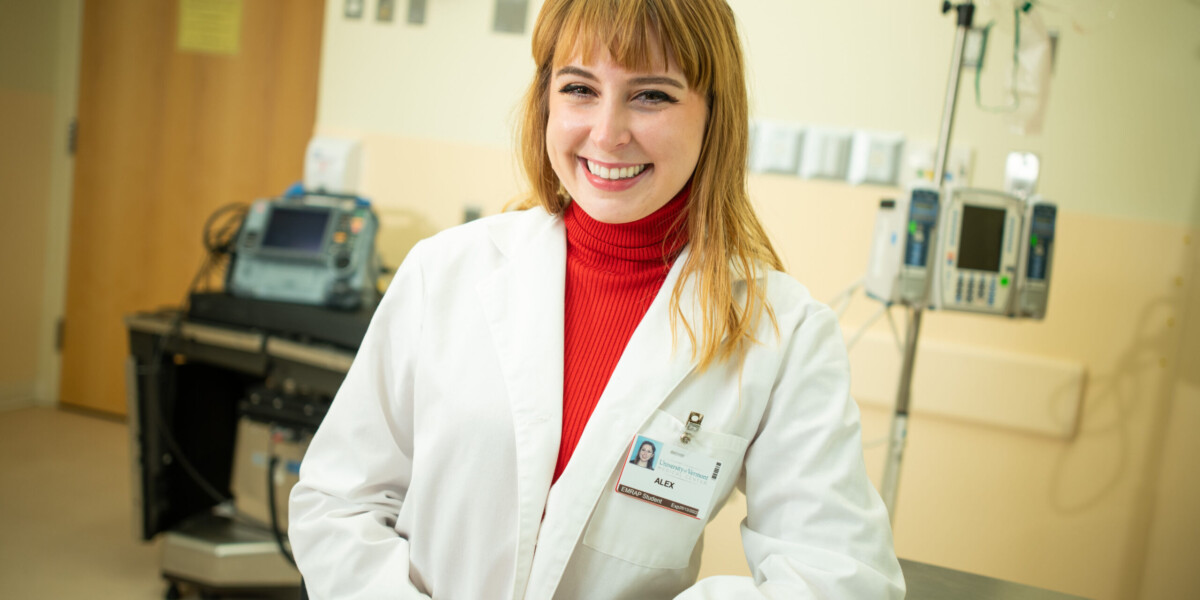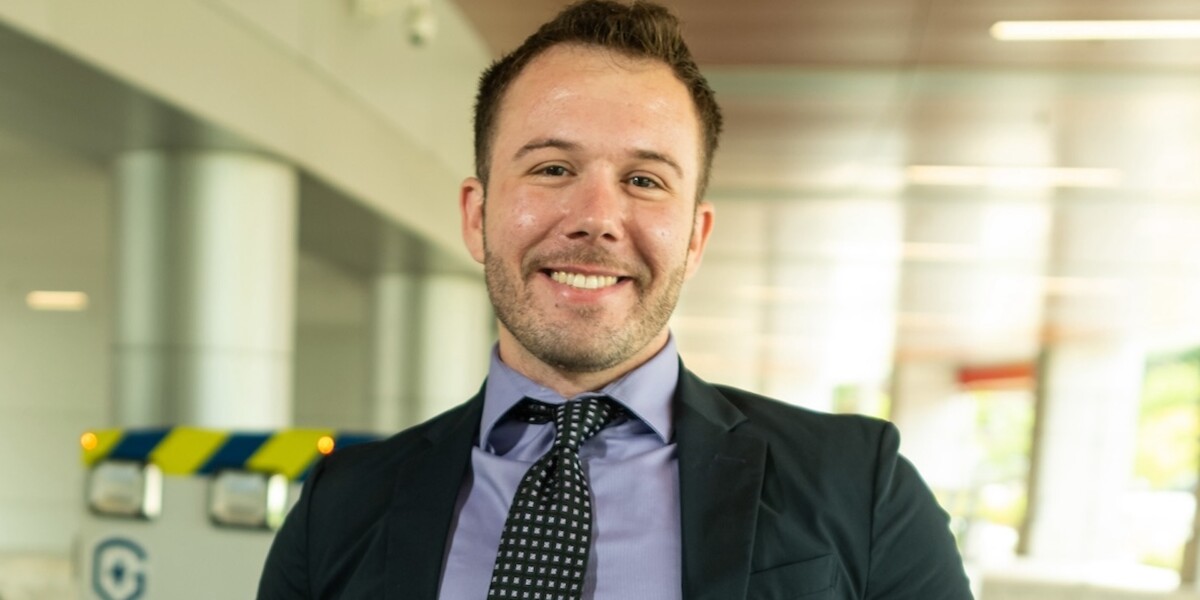Like many graduates of the University of Vermont’s Post-Baccalaureate Premedical Program, Emily Ryan was thrilled to find out she was accepted to medical school. But though she may have a lot more to learn, she already has had a series of life experiences that have shaped her approach to medicine.
Throughout her undergraduate years at Hampshire College and later at UVM, Ryan worked on women’s health issues. She traveled several times to El Salvador to shadow doctors and nurses working with Basic Health International, a non-profit organization that aims to eradicate cervical cancer and improve rural women’s access to medical services. She also served on the Board of Directors for Vermont Access to Reproductive Freedom.
Her experiences helped her realize the importance of providing women with access to health services, no matter what their circumstances.
“I wrote about it in my medical school application,” she says. “It’s such a key part of why I want to become a doctor.” She already is considering specializing in obstetrics and gynecology because it combines her interests – “public and social health and working with women through the life span.”
As a student in the Post-Bac Premed Program, Ryan not only learned in the classroom – taking two years of intensive science courses like physics, microbiology and biochemistry – but also in the community. Employed part time by Spectrum Youth and Family Services, she worked with teenage boys who had been referred by the state after run-ins with the law.
“It’s one of those pieces of a skill set that physicians need – and an issue that they need to be aware of,” she explains. “There are so many structural, institutional problems that come into play in public health.”
A Passion for Public Health
Throughout her time at UVM, Ryan’s drive to become a doctor was tested. “It’s hard to be so committed to something that possibly couldn’t happen. Medical school was not for sure,” she said. “I had two years of taking out loans and trying to believe in myself. It really forces you to really make sure medical school is the right thing for you.”
Despite her passion for public health and medicine, Ryan didn’t start undergraduate college thinking she was going to become a doctor. Her interest was sparked when she took courses in medical ethics and philosophy; she also had been exposed to medicine through a series of family illnesses. She lost a brother to a brain tumor in 1994, her father died in 2010 after a long struggle with bone marrow cancer, and her mother survived breast cancer.
“I have never had a fear of hospitals. I’ve been around them a lot. I really like science, I like learning and I really like challenging myself, so subtly I felt comfortable in those scenarios,” she said. “Medicine never really seemed like a career path as much as a thing we did.”
But it was in 2009 – starting with her first visit to El Salvador as part of a college course – that she experienced what she calls “a version of medicine that really inspired me.”
Building a Prototype
Ryan worked closely with Basic Health International, which trains Salvadoran providers to use low-tech cancer screenings instead of more costly, complex Pap smears. Traditionally, only 19 percent of Salvadoran women are screened for cervical cancer versus 80 percent of American women.
Even with the screenings, Ryan still identified an additional barrier for women seeking services. “The lack of portable, affordable and durable equipment in low-resource communities is a true barrier to screening women for cervical cancer,” she explained.
She envisioned a transportable gynecological table that health providers could carry into in rural communities, and she enlisted the aid of Hampshire professors and students in an applied design class to create it.
Over four years, Ryan traveled to El Salvador several times to let providers and patients test out the prototypes – five iterations so far.
The first model used recycled bicycle inner tubes, woven on a frame that resembled a 1960s-style lawn chair. “The first ones that I built were pretty horrible,” she recalled. But her fellow students and team members, Katie Coupe and Aaron Cantrell, had the art and engineering skills necessary to help Ryan design a more usable table. “We want to create a design that is really usable anywhere in the world,” she said. The current version uses a frame made from steel conduit – a cheap material that is available globally – and constructed so it can be collapsed into a backpack.
As she heads off to medical school, Ryan still continues to work on the project, leading Polly Allen, her advisor at UVM, to note that “Emily will be the kind of physician who makes a real difference, for each and every patient she encounters.”

For more information about UVM’s Post-Baccalaureate Premedical Program, visit learn.uvm.edu.





